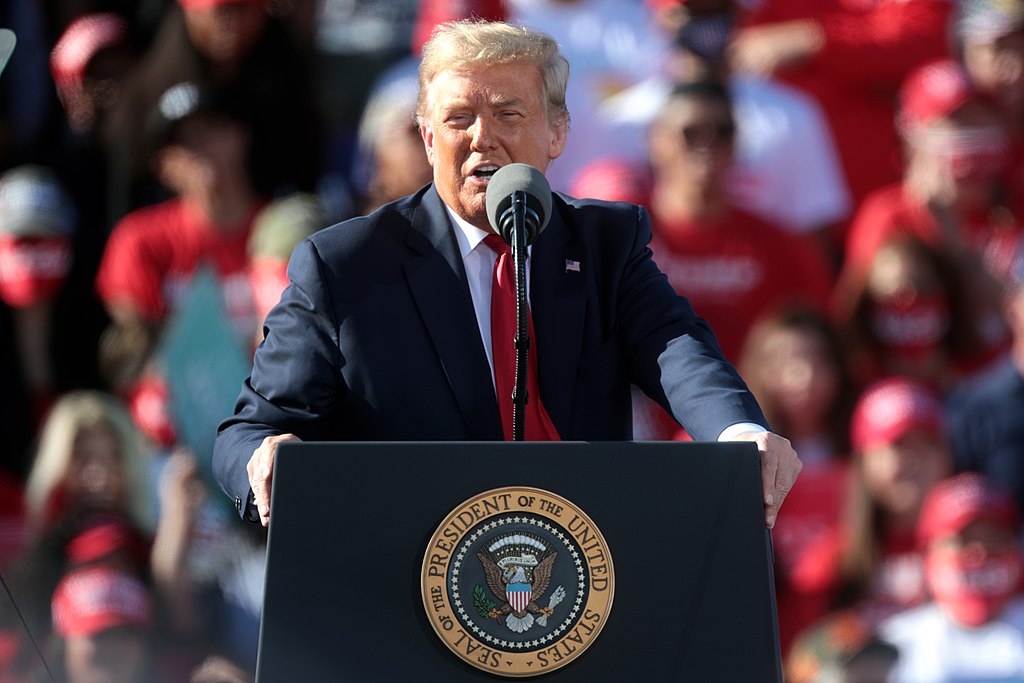As President Donald Trump settles into his second term in 2025, his relationship with Wall Street continues to be a polarizing topic. While some hail his administration’s pro-business policies as catalysts for economic growth, others criticize them as favoring the ultra-wealthy at the expense of working Americans. Trump's close ties to financial institutions and major corporations are shaping his economic agenda, drawing both praise and backlash.
Pro-Business Policies Drive Wall Street Optimism
Wall Street has been quick to embrace Trump’s 2025 policies, which include rolling back financial regulations implemented during previous administrations. The administration has touted these measures as necessary to foster innovation and maintain U.S. competitiveness in global markets.
Trump has also pushed for tax cuts targeting corporations and high-income earners, sparking a surge in stock market performance. The Dow Jones Industrial Average recently hit a record high, with investors crediting the administration’s business-friendly stance for bolstering confidence.
“America’s financial system is the engine of global growth,” Trump declared during a recent speech at the Economic Club of New York. “My administration will ensure that Wall Street remains strong and that our economy benefits every American.”
Supporters argue that these policies have led to job creation and higher wages, particularly in industries reliant on investment capital. Financial analysts have praised Trump’s leadership for reinvigorating markets and restoring faith in U.S. economic dominance.
Critics Question Impact on Main Street
Despite Wall Street’s enthusiasm, critics claim Trump’s policies disproportionately benefit wealthy investors while leaving middle- and lower-income Americans behind. Advocacy groups argue that deregulation poses risks to economic stability, citing fears of another financial crisis.
Economist Rachel Donovan, a vocal critic, described the administration’s approach as a “reckless gamble” that prioritizes short-term gains over long-term sustainability. “We’ve seen this before,” she warned. “The unchecked greed of Wall Street can have devastating consequences for ordinary Americans.”
Furthermore, Trump’s decision to appoint several former Wall Street executives to key economic advisory roles has drawn scrutiny. Opponents accuse his administration of enabling corporate interests to influence policy at the expense of broader public welfare.
Social Media Reactions Highlight Divisions
Trump’s relationship with Wall Street has ignited intense debate on social media platforms, with users expressing mixed opinions:
- @StockBull2025: “The markets are booming under Trump. Why complain when everyone’s 401(k)s are growing?”
- @JusticeForMainSt: “This administration is catering to billionaires while working families struggle to make ends meet. Enough is enough.”
- @EconomyQueen: “Say what you will, but Trump knows how to deliver for investors. My portfolio thanks him!”
- @StopCorporateGreed: “This isn’t economic growth; it’s a heist. Wall Street wins, and Main Street loses.”
- @FreedomInvestor: “Finally, a president who understands the importance of a strong financial sector. Trump delivers again!”
- @EqualOppNow: “Corporate tax cuts don’t trickle down. This is nothing more than another handout to the rich.”
The Road Ahead for Trump’s Economic Vision
As Trump deepens his ties with Wall Street, his administration’s economic policies will likely remain a focal point of debate. Proponents argue that his approach ensures America’s financial supremacy, while critics warn of widening inequality and potential risks to stability.
The ultimate impact of Trump’s policies on the broader economy remains uncertain. However, one thing is clear: his relationship with Wall Street will continue to dominate discussions about economic justice and prosperity.



 Trump to Address Nation as U.S. Launches Strikes in Iran, Axios Reports
Trump to Address Nation as U.S. Launches Strikes in Iran, Axios Reports  Trump Launches Operation Epic Fury: U.S. Strikes on Iran Mark High-Risk Shift in Middle East
Trump Launches Operation Epic Fury: U.S. Strikes on Iran Mark High-Risk Shift in Middle East  HHS Adds New Members to Vaccine Advisory Panel Amid Legal and Market Uncertainty
HHS Adds New Members to Vaccine Advisory Panel Amid Legal and Market Uncertainty  AI is already creeping into election campaigns. NZ’s rules aren’t ready
AI is already creeping into election campaigns. NZ’s rules aren’t ready  Does international law still matter? The strike on the girls’ school in Iran shows why we need it
Does international law still matter? The strike on the girls’ school in Iran shows why we need it  Israel Strikes Hezbollah Targets in Lebanon After Missile and Drone Attacks
Israel Strikes Hezbollah Targets in Lebanon After Missile and Drone Attacks  Marco Rubio to Brief Congress After U.S.-Israeli Strikes on Iran
Marco Rubio to Brief Congress After U.S.-Israeli Strikes on Iran  Argentina Tax Reform 2026: President Javier Milei Pushes Lower Taxes and Structural Changes
Argentina Tax Reform 2026: President Javier Milei Pushes Lower Taxes and Structural Changes  U.S. Lawmakers Question Trump’s Iran Strategy After Joint U.S.-Israeli Strikes
U.S. Lawmakers Question Trump’s Iran Strategy After Joint U.S.-Israeli Strikes  Suspected Drone Strike Hits RAF Akrotiri Base in Cyprus, Causing Limited Damage
Suspected Drone Strike Hits RAF Akrotiri Base in Cyprus, Causing Limited Damage  Trump Warns Iran as Gulf Conflict Disrupts Oil Markets and Global Trade
Trump Warns Iran as Gulf Conflict Disrupts Oil Markets and Global Trade  Netanyahu Suggests Iran’s Supreme Leader Khamenei May Have Been Killed in Israeli-U.S. Strikes
Netanyahu Suggests Iran’s Supreme Leader Khamenei May Have Been Killed in Israeli-U.S. Strikes  Zelenskiy Urges Change in Iran After U.S. and Israeli Strikes, Cites Drone Support for Russia
Zelenskiy Urges Change in Iran After U.S. and Israeli Strikes, Cites Drone Support for Russia  Macron Urges Emergency UN Security Council Meeting as US-Israel Strikes on Iran Escalate Middle East Tensions
Macron Urges Emergency UN Security Council Meeting as US-Israel Strikes on Iran Escalate Middle East Tensions  Middle East Conflict Escalates After Khamenei’s Death as U.S., Israel and Iran Exchange Strikes
Middle East Conflict Escalates After Khamenei’s Death as U.S., Israel and Iran Exchange Strikes  Israel Declares State of Emergency as Iran Launches Missile Attacks
Israel Declares State of Emergency as Iran Launches Missile Attacks  Pentagon Leaders Monitor U.S. Iran Operation from Mar-a-Lago
Pentagon Leaders Monitor U.S. Iran Operation from Mar-a-Lago 
































